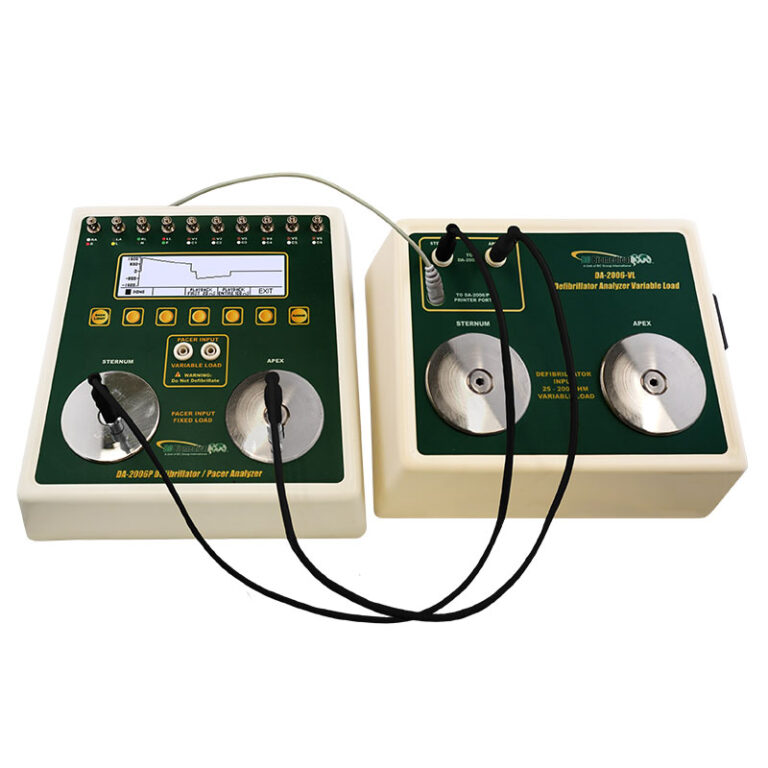A defibrillator analyzer is a specialized piece of test equipment designed to ensure the proper functionality, safety, and performance of defibrillators. Defibrillators are critical medical devices used to deliver a controlled electrical shock to restore normal heart rhythm in patients experiencing life-threatening arrhythmias or cardiac arrest. The analyzer is essential for verifying that these devices deliver the correct energy output, adhere to timing specifications, and meet operational standards, ensuring they perform reliably during emergencies. Without regular testing using a defibrillator analyzer, there is a risk of malfunction, which could result in patient harm or ineffective treatment.
The primary purpose of a defibrillator analyzer is to simulate human physiological conditions and accurately measure the energy output and other parameters of a defibrillator. It provides precise feedback on the delivered energy (measured in joules), charge times, and waveform characteristics to confirm they match manufacturer specifications and regulatory standards. Advanced defibrillator analyzers can also simulate various cardiac rhythms to test the defibrillator’s ability to recognize and respond appropriately to different clinical scenarios. This functionality is critical in verifying both manual and automated external defibrillators (AEDs).
In addition to performance testing, defibrillator analyzers contribute to preventive maintenance and compliance with safety regulations. Healthcare facilities and biomedical technicians use these tools to perform routine inspections, identify potential issues before they lead to device failure, and document compliance with standards set by organizations such as the FDA, IEC, or NFPA. Regular use of a defibrillator analyzer ensures that these life-saving devices remain dependable and effective, safeguarding both patients and clinical staff in high-stakes medical situations.

